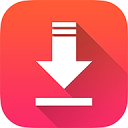




Death Clock

Description of Death Clock
Death Clock, also referred to as the Death Meter, is an app designed to estimate an individual's death date and time based on various personal factors. This tool, available for the Android platform, has garnered significant attention, with over 5 million users engaging with its features. Users can download Death Clock to gain insights into their mortality, which can be both thought-provoking and intriguing.
The app functions through a straightforward interface that prompts users to input essential information. This includes age, gender, lifestyle choices, and health-related details. By analyzing this data, Death Clock generates a personalized prediction regarding the user's expected date and time of death. The simplicity of the input process allows individuals to quickly engage with the application without extensive technical knowledge.
A unique aspect of Death Clock is its reliance on statistical models and algorithms. These calculations draw from a vast database of demographic and health information, allowing the app to produce estimates that are grounded in real-world data. As a result, users can view their predicted death date alongside various statistics that reflect average life expectancies based on similar profiles. This feature provides context to the predictions, making them more relatable and easier to comprehend.
In addition to the core function of predicting death, Death Clock includes a variety of supplementary features. Users can explore detailed statistics regarding life expectancy trends and factors influencing longevity. The app presents this information in a clear format, enabling users to understand how their own habits and circumstances may impact their predicted lifespan. This educational component encourages users to reflect on their lifestyles and consider health improvements.
For those interested in the social aspect of mortality, Death Clock offers sharing options. Users can share their predictions with friends or family, fostering discussions about life, health, and mortality. This feature can serve as a conversation starter within social circles, allowing individuals to engage with the topic of death in a lighthearted manner. The sharing capability exemplifies how the app can facilitate connections between users as they navigate the often-taboo subject of mortality.
Another noteworthy feature of this application is the ability to customize user profiles. Individuals can adjust their input data over time, reflecting changes in lifestyle or health status. This adaptability ensures that the predictions remain relevant as users age and their circumstances evolve. The app encourages users to return periodically, allowing them to see how their estimated death date shifts based on their current lifestyle choices.
Death Clock also includes a section dedicated to mortality-related quotes and facts. This aspect serves to further engage users by providing thought-provoking content that complements the app's primary function. By integrating quotes and facts about life and death, users can find inspiration or reflection as they navigate their own mortality predictions.
The design of Death Clock prioritizes user experience with a clean and intuitive interface. Navigation through the app is seamless, allowing users to easily access various features without confusion. This focus on usability enhances the overall experience, making it accessible for a wide range of individuals, regardless of their familiarity with technology.
Security and privacy are essential considerations for users of Death Clock. The app emphasizes the protection of personal information, ensuring that data entered by users remains confidential. This commitment to user privacy allows individuals to engage with the app without concerns about their sensitive information being misused.
For users seeking a deeper understanding of their mortality, Death Clock provides various resources and educational content. This information can help users make informed choices regarding their health and lifestyle, potentially influencing their longevity. By offering insights into factors that contribute to a longer life, the app empowers individuals to take charge of their well-being.
The app also encourages users to maintain a healthy lifestyle by providing tips and suggestions based on their profiles. This feature creates a proactive approach to personal health, motivating users to consider lifestyle changes that may positively affect their longevity predictions. Engaging with these recommendations can lead to healthier habits and a more fulfilling life.
As individuals explore their mortality through Death Clock, they may find themselves reflecting on their life choices and priorities. The app serves as a reminder of the finite nature of life, prompting users to appreciate the present and make meaningful decisions moving forward. This introspective element can be a valuable aspect of the user experience.
Death Clock stands out as a unique application that invites users to confront the subject of mortality in a thoughtful manner. Through its various features, including personalized predictions, educational content, and social sharing options, the app offers a comprehensive tool for exploring the concept of life and death. Users can engage with this app to gain insights into their own lives, encouraging a greater awareness of health and longevity.
For those interested in exploring the features of Death Clock, it is available for download on the Android platform, allowing users to easily access its functionalities and begin their journey into understanding mortality.



























